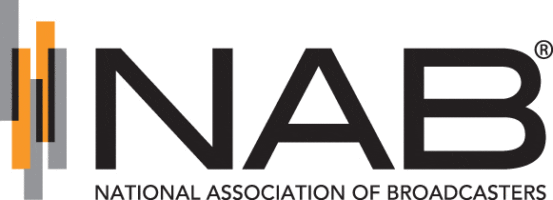UPDATE Opponents of NAB’s proposal calling for the FCC to re-configure its regulatory fee structure have struck back hard, calling it “dangerous to the entire wireless ecosystem.” Inside Towers reported that broadcasters say the agency should add a category for broadband fees, or exempt stations from paying for broadband costs.
NAB noted that “Big Tech” takes up a significant amount of the Commission’s time, yet pays no annual regulatory fees and it’s time for that to change. State broadcast associations agree.
A coalition of eight lobbying associations including the Benton Institute for Broadband & Society and the Schools, Health, Libraries & Broadband Coalition argue that NAB’s proposal to require unlicensed spectrum users to pay regulatory fees is flawed, infeasible and counterproductive. Together, the eight organizations call themselves the Public Interest Spectrum Coalition. “Nobody likes paying regulatory fees,” they tell the Commission in response.
“The National Association of Broadcasters and State Broadcasters Associations have become wealthy and powerful by exploiting their exclusive access to scarce, licensed spectrum. They received their grants of free spectrum prior to auctions,” notes the coalition. Members say even if the proposed fee were imposed, it would be impossible to administer. “The broad number of users of ‘unlicensed spectrum’ and the wide variety of use cases make it impossible to find an accurate and fair way to determine or distribute agency expenses assigned to unlicensed spectrum use,” the coalition tells the FCC.
The WiFi Alliance, too, opposes the proposal, noting that imposing such a fee would create unnecessary costs and hurt consumers. The Alliance calls unlicensed spectrum “a great Commission success story,” explaining that the FCC’s decision to make available several small spectrum allocations for unlicensed WiFi use makes WiFi “the predominant means by which Americans and others access the internet.”
It praises the agency’s light-touch regulatory approach for WiFi and other unlicensed technologies. Implementing the broadcast proposal would threaten future innovation “by imposing fees on services that use unlicensed spectrum and entities that manufacture and distribute devices that use unlicensed spectrum,” according to the alliance.
The Consumer Technology Association says many members pay FCC regulatory fees. They also build, sell, and rely on unlicensed technologies. Granting the broadcaster’s request “would overturn years of Commission precedent,” raise serious administrability concerns, “be impossible to implement in a non-arbitrary manner, and have significant implications for regulatory fees in contexts beyond unlicensed spectrum.” The CTA also tells the agency the proposal overlooks that companies using unlicensed spectrum already defray Commission costs in important ways.
Potential beneficiaries of unlicensed spectrum subject to NAB’s proposed regulatory fees share little in common other than their use of unlicensed spectrum, according to CTA. Potential regulatory fee payors would include, for example, mobile network operators that take advantage of WiFi to offload traffic; content providers whose programming travels over WiFi and consumers who use WiFi–enabled devices like garage door openers, televisions and smart refrigerators.
CTA questions how the FCC would define which unlicensed spectrum uses or benefits from unlicensed spectrum would qualify to trigger the application of regulatory fees. According to CTA: “Chipmakers, component makers, device makers, device users, broadband internet providers, content providers, mobile network operators, vendors, enterprise users, and consumers all ‘use’ unlicensed spectrum in various ways or ‘benefit’ from its availability.”
The Wireless Internet Service Providers Association says the broadcast proposal ignores the fact that unlicensed users already contribute to the Office of Engineering & Technology’s work through equipment certification fees. WISPA, too, says imposing an annual fee on unlicensed spectrum users “would be unprecedented, arbitrary, and capricious.” WISPA joins the other opponents in urging the FCC to retain the current regulatory fee structure.
By Leslie Stimson, Inside Towers Washington Bureau Chief





Reader Interactions